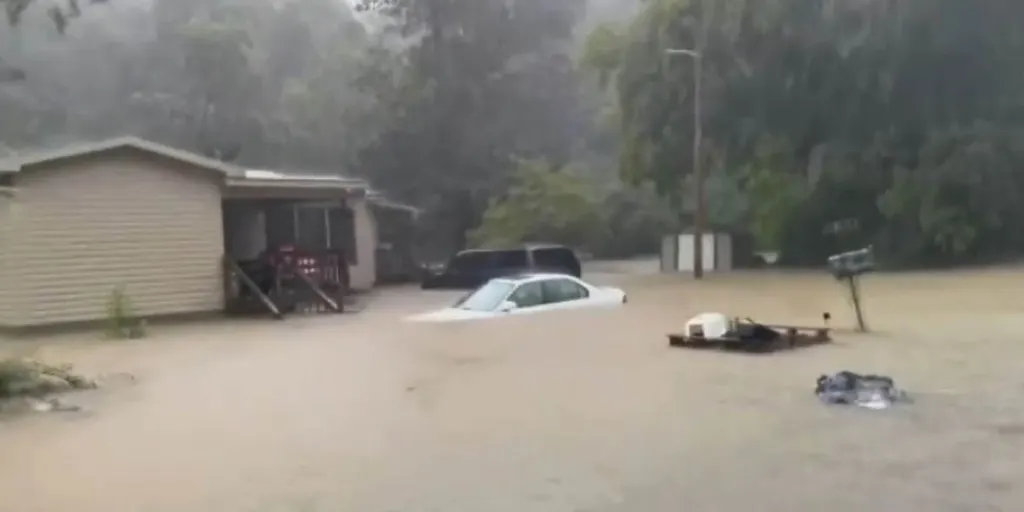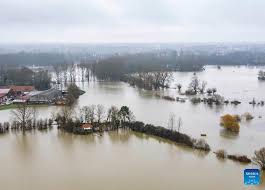"Joy in the Journey" on the Ark? A study of Genesis 8:10-22
- mww

- Jan 10, 2024
- 14 min read
Updated: Aug 15, 2025
In God's presence, there is always hope.
Bible Study Ideas and Commentary for Genesis 8:10-22
In part two of our Noah series, we take in the end of their journey. I can't begin to imagine the relief and the trepidation Noah's family must have felt in those final days on the ark. But Noah's first action (once he had seen to the care of the animals) was to offer God a sacrifice of thanksgiving. There are so many lessons for us in these verses...
As long as the earth endures, seedtime and harvest, cold and heat, summer and winter, and day and night will not cease.” (8:22)

When We Studied This in 2015
When last we studied Genesis, the lesson plan combined this week's passage and next week's passage into one lesson.
We are going to be focusing on the covenant between God and Noah next week (and thus the rainbow, one of the more fascinating natural phenomena).
Things you'll find in that post:
Mount Ararat
Clean vs. unclean
What's an altar?
Why was God pleased?
I'll repeat some Mount Ararat stuff because there have been plenty of new theories dropped in the past 8 years. Otherwise, I'm going to lean into some thought exercises and illustrations in this week's post. I don't believe that this week's passage requires a lot of technical explanation; instead, it's a passage to be enjoyed.
Getting Started: Things to Think About
Birds!
I'm a bird person, so I have a hard time understanding non-bird persons. Birds are featured in this week's passage, and that only makes sense to me. If you're not a bird person, you might not realize just how smart they are and how big their personalities are.
Here's a brief review of observable "smarts" in wild birds:
Here's a short video from Nat Geo Wild:
And here's a YouTuber with some common pet birds, putting all of them (and the fun things they can do) on display in a 5-minute video:
Why yes, I do want more people to enjoy birds. Why do you ask?
A Very Long or Rough Trip
What's the longest trip you've taken? Car or plane or boat. What are your memories from that trip? Have you ever gotten carsick/seasick/planesick?
I do not have any real nightmare travel stories. I enjoy travel. Buuuut....... If I'm in the back seat of a car, I get carsick now. And while it doesn't make me sick, I really really do not enjoy turbulence. (It's been a long time since I've been on ship; I did not get seasick the last time I was.)
My wife grew up in central Kansas, and her family would drive to Vegas for vacation. Being the youngest, she would be in the back seat. You might remember road trip cars from the 80s. For me, it was a station wagon. For her, I think it was a conversion van.

One summer, their AC went out in Nevada. She spoke negatively about that trip.

I have seen nightmare videos about turbulence. We've all heard nightmare stories about a cruise-gone-wrong (some of these terrible stories might ring a bell).
What's your worst memory of a long and/or rough trip?
What's the point of this topic? To generate sympathy for Noah and his family, who shared a giant boat with thousands of animals for some 12-odd months.
Exactly.
Pray for Flood Victims
We just had a storm pass through eastern Georgia yesterday, and I understand that the storm system caused significant damage in Florida and on the Carolina coast. When I looked up the flooding impact, I found stories about floods all over the world from just this past week. Here are just a few pictures (top row is California, Texas, and Georgia; bottom row is UK, Germany, and China):
If you've been through a flood, you know how devastating it is on so many levels. If we're going to be talking about a flood today, I think it would be appropriate to pray for the people who are still trying to clean up from flood damage at this moment.
Apocalyptic Flood Movies
People are fascinated by movies about the end of the world. How do we know that? Studios keep making them. Have you ever watched a movie that's specifically about a flood disaster? There are more than a few:
I haven't watched this movie, but I got a kick out of the poster:

It's pretty meaningless to try to imagine living through a movie like that because basically everybody dies. But, that's exactly what happens in our passage. I cannot begin to comprehend the experience of Noah and his family.

If you instead just want to make fun of apocalyptic flood movies, I offer Waterworld (which I actually saw in theaters). It's pretty nuts. It also takes the premise of "what if a worldwide flood happened today" to its extreme conclusion. As you might expect, critics all panned its physics -- there are no satisfactory natural explanations for a worldwide flood like that described in the movie. And that's where we tend to start arguing about things; there is no natural explanation for the events of Genesis 6-8.
-or- Post-Apocalyptic Movies
Another topic you could try is the post-apocalyptic movie, namely one that focuses on how the last few remaining people try to rebuild. There are tons of these shows.
My point: those shows are depressing. The idea of successfully rebuilding society and repopulating the earth is often considered out-of-reach.
And yet, at the end of our story in Genesis, the tenor is one of hope. What's the difference?
Where We Are in Genesis
This week's passage closely follows last week's. Last week, Noah and his family entered the ark (along with a representation of all plant and animal life) and then God flooded the entire earth.
According to 7:17, it took 40 days of water to flood the earth. It is an incomprehensible amount of water. And according to 7:24, it took 150 days for the water to recede. (Where did it go? I don't know!) Here's an interesting tidbit about 7:24 -- the verb in it is "prevailed over". The water "prevailed" over the earth. This hearkens back to chapter 1, in which the Spirit subdued the "chaotic deep" to make it livable for sea life. For these few months, God allowed the chaotic deep to conquer the land. This does not make me think of underworld mythology or animism; instead, it makes me think about what happens under the tectonic plates. Did the land masses somehow contract, releasing whatever is beneath them? (Don't @ me, geologists. I have no idea how this works.) The point the text seems to be making is that for a time, the water conquered the land.
8:1 says that God "sent a wind" to put the waters back in place. Before anyone throws a fit about "science", remember that the Hebrew word for "wind" is the same as for "spirit". This is a callback to Genesis 1:2. Remember that Moses is sharing these words with a large population of Hebrew slaves. They don't know anything about hydrodynamics or plate tectonics. But they do recognize that God is taking control of the floodwaters just as He took control of the "chaotic deep" at the beginning of creation.
But there's another connection to "wind" that his audience would have had:
So Moses stretched out his staff over the land of Egypt, and the Lord sent an east wind over the land all that day and through the night. By morning the east wind had brought in the locusts. (Ex 10:13)
Then Moses stretched out his hand over the sea. The Lord drove the sea back with a powerful east wind all that night and turned the sea into dry land. So the waters were divided, (Ex 14:21)
That's what they would have been thinking when they heard the flood narrative. God has used a "wind" to do incredible things in their recent past; my guess is that our understanding of "wind" probably limits our interpretation of this passage.
As the water recedes, the ark comes to rest on the Mountains of Ararat. And I'm going to turn that into our "big idea" for the week.
This Week's Big Idea: Ararat
I shared a picture of the traditional Mount Ararat last week:

Stunning. Incredible. Awe-inspiring. Wonderful.
"Ararat" is an ancient name for a region in northern Mesopotamia (Urartu), which is in modern day east Turkey.

If you've ever gotten lost in the internet literature about the "search for the ark of the covenant", just wait until you dive into the "search for Noah's ark".
Here's a Popular Mechanics (!) article from November 2023:
The Jerusalem Post gave their take on it:
And of course the Answers in Genesis people had to chime in:
This article from 2021 seems to be talking about the same discovery...
And this article from 2021 says they're all wrong:
Here's my takeaway: it's all clickbait. There are so many ads on those sites, it's hard to follow where the article even is on the page!
But more seriously, I can't imagine that we would ever find Noah's ark. Considering that the trees would be regrowing from scratch, wouldn't they have dismantled the ark and used it as a resource? Building materials and maybe firewood?
Like the search for the ark of the covenant, I think the search for Noah's ark is chasing after the wind.
Part 1: It's Almost Time (Genesis 8:10-14)
10 So Noah waited seven more days and sent out the dove from the ark again. 11 When the dove came to him at evening, there was a plucked olive leaf in its beak. So Noah knew that the water on the earth’s surface had gone down. 12 After he had waited another seven days, he sent out the dove, but it did not return to him again. 13 In the six hundred first year, in the first month, on the first day of the month, the water that had covered the earth was dried up. Then Noah removed the ark’s cover and saw that the surface of the ground was drying. 14 By the twenty-seventh day of the second month, the earth was dry.
Noah sent out two birds: a raven, then a dove. They acted like ancient sonar. The way the windows were built -- up high, and very narrow -- Noah probably couldn't get a "good look around". The ark was essentially a sealed box, else water would have gotten in and destroyed everything. But small birds could fit through the window, and Noah could follow their path in the sky.
An awful lot of symbolism has been seen in those choices -- more than the Bible specifically says. Why did Noah send out a raven at all? If the raven, an "unclean" bird, had a symbolic role like the scapegoat, then this is about Noah "sending away" the sin.
I've never read it that way. Instead, like in the articles I linked at the very top of the post, I think Noah knew how smart the raven was. I think Noah sent out the raven and then simply observed it. If there was land anywhere, the raven would find it. (I don't think Noah could "steer" the ark; instead, this was either about improving the morale of his family; maybe Noah himself needed some encouragement, and maybe he was even a bit impatient! I think I could relate.)
When the raven didn't come back, Noah switched to a dove. It's impossible not to see symbolism in this choice.
When Jesus was baptized, he went up immediately from the water. The heavens suddenly opened for him, and he saw the Spirit of God descending like a dove and coming down on him. (Matt 3:16)
But that's a New Testament image. In the Old Testament, this is what they thought of doves:
So Ephraim has become like a silly, senseless dove; they call to Egypt, and they go to Assyria. (Hos 7:11)
This would suggest that Noah sent out the dove precisely because it wasn't very cunning or hardy. If it could "find a home" and not come back, then Noah could be confident that things were improving, and he could "break the seal" of the ark.

BUT -- we have the added imagery of the olive leaf. Today, the "olive branch" represents peace. But think of it this way -- the olive branch has come to present peace because of its role in this story, not the other way around. Olive trees were critical parts of Mesopotamian society. They could thrive in difficult environments. Their wood was hardy, excellent for furniture and building. Olive oil was healthful (as we know) and incredibly useful for so many things. I think the dove brought back an olive branch not as a symbol of peace with God, but because God had made olive trees to be hardy. And consequently, the olive branch became a symbol of peace. Note: there are a lot of very important symbols that come out of this story.
Aside on trees and salt water. I grew up visiting Galveston, so I have personal experience with this. In 2008, Hurricane Ike covered Galveston with saltwater, and it devastated the plant life on the island (including their historic oaks, which they tried to save). So, how could there be an olive tree after a worldwide flood? C'mon, y'all. You remember that God grew the Garden of Eden from scratch just a few chapters ago, right? We stepped away from "natural causes" a while back. God wanted to make it clear that this flood was not "natural" -- no one could explain it as anything other than divine judgment for human sin. And certainly, we can see God's hand in the recovery. There is no "natural" way the earth could recover so quickly from such an event. (The Bible doesn't speak to this, but I'm sure that God "helped" the animals travel safely and procreate quickly.)
Your leader guide says that the date-stamps indicate that the family was in the ark with the animals for one year and eleven days. A point I learn from these verses is that Noah continued to think about the well-being of the passengers on the ark, and he was thoughtful and careful in his action -- even after more than a year of confinement!
Part 2: Everyone to the Exits (Genesis 8:15-19)
15 Then God spoke to Noah, 16 “Come out of the ark, you, your wife, your sons, and your sons’ wives with you. 17 Bring out all the living creatures that are with you—birds, livestock, those that crawl on the earth—and they will spread over the earth and be fruitful and multiply on the earth.” 18 So Noah, along with his sons, his wife, and his sons’ wives, came out. 19 All the animals, all the creatures that crawl, and all the flying creatures—everything that moves on the earth—came out of the ark by their families.
This is where you would share the "end of a long journey" stories. Whatever relief you felt getting off that boat/out of that car, multiply it by umpteen-gajillion to approach what Noah's family must have felt.
And yet, how strange and bittersweet! Everything was gone. Most likely, they were nowhere near where they had lived. They couldn't recognize anything, and they couldn't see anything of the past. The world was a blank slate. I suppose that sounds cool in theory, but I can't imagine how terrifying it must have been in practice.
But first, they had the enormous task of getting everything out of the ark. I love animals, so I think of this like a VIP visit to the Omaha Zoo (you should go!). But I'm sure it was stressful! All of that work keeping those animals alive -- better not let the elephant step on the platypus now!
We will talk about the "be fruitful and multiply" part next week.
Part 3: Thank You, Lord (Genesis 8:20-22)
20 Then Noah built an altar to the Lord. He took some of every kind of clean animal and every kind of clean bird and offered burnt offerings on the altar. 21 When the Lord smelled the pleasing aroma, he said to himself, “I will never again curse the ground because of human beings, even though the inclination of the human heart is evil from youth onward. And I will never again strike down every living thing as I have done.
22 As long as the earth endures, seedtime and harvest, cold and heat, summer and winter, and day and night will not cease.”
Again, we will talk about the covenant God made with Noah next week, so let's just focus on these verses.
I mentioned this in my previous post -- this is the first reference to an "altar" in the Bible. The Hebrew word mizbe’ah literally means “place of slaughter”; so, an "altar to the Lord" would be a place a person would bring an animal to be killed and burned as a sacrifice to God. I do not think this would be an appropriate place to discuss the "sacrificial system" we learn about in the rest of the Old Testament, whether or not you think it's barbaric, or how it points us to Jesus. We've talked about that at length elsewhere.
That pushes into a much more advanced discussion of God's holiness that Noah wasn't thinking about when he did this:
Instead, let's focus on what Noah did here.
In the ancient world, altars were thought of as "meeting points" with "the gods". A person would put his offering/sacrifice on an altar where the god would receive and respond with a blessing. God allowed the Hebrews to build altars (e.g. Ex 20:25), but note the rules -- their altars couldn't look anything like the altars of the pagan peoples around them. God wanted His people to recognize a difference in their relationship with the One True God.
But again, that's all post-Noah. Noah had talked to God. God considered Noah to be a righteous man. They were already on good terms. And Noah wanted to say "thank you" to God in a meaningful way.
This seems like an appropriate time to remind us about Genesis 4:
3 In the course of time Cain presented some of the land’s produce as an offering to the Lord. 4 And Abel also presented an offering—some of the firstborn of his flock and their fat portions. The Lord had regard for Abel and his offering, 5 but he did not have regard for Cain and his offering.
There, we said that it was a matter of the heart. Abel gave a true sacrifice of thanksgiving. Cain went through the motions.
And so it is in Genesis 8 -- Noah wanted to give God an offering that meant something to him. That's where the "clean vs. unclean" note from 7:2 comes into play:
2 You are to take with you seven pairs, a male and its female, of all the clean animals, and two of the animals that are not clean, a male and its female, 3 and seven pairs, male and female, of the birds of the sky—in order to keep offspring alive throughout the earth.
This is the first reference to "clean vs. unclean" in the Bible (and you had better believe that the documentary hypothesis folks go to town with this), but this would not have been a new concept to the Hebrews just now hearing this. You can find references to "clean" and "unclean" animals in most of the ancient Near Eastern religions. Why? Well, my assumption is it all traces back to Noah. God explains the details to the Hebrews in Leviticus 11. But here, my assumption is that "clean" referred to dietary restrictions.

In other words, this isn't about what God would accept as an offering as much as it was about what was acceptable food to Noah and his family. That's why God had Noah take 7 pairs of clean animals -- God was going to help increase Noah's food supply as quickly as possible. So, when Noah offered some of these clean animals to God, Noah was offering out of his family's food supply.
This was an offering that meant something to Noah. God understood that, and He found it "acceptable". The symbolism of the burnt offering is that it is a complete sacrifice; it points us to our own lives, how we are to be a "living, pleasing sacrifice" to the Lord (Romans 12:1-2). Smoke is a good symbol because it goes "up" -- symbolizing the approach to God.
In response to Noah's offering, God responded with a promise: He would never again flood the whole earth.

This promise might be more valuable than you realize. We sing these words in "Great Is Thy Faithfulness", and they stir up hope in our souls. But the meaning is deeper: as long as the earth exists, there will be seasons. This is why I do not fear the changes in the weather. I believe that God will send Jesus back before the earth becomes unlivable. That doesn't mean that there won't be uninhabitable zones (just as in Moses' day -- Egypt was surround by desert, after all), but it means that the earth will sustain life until, well, God destroys it with fire. But that's at the other end of the Bible.
God will send Jesus back before people destroy the world. As strange as that sentence is, it gives me comfort.
Again, we will talk about the covenant next week. This week, it's about thanksgiving.
When you have been through a harrowing experience, what's your first reaction when it's over? According to the example of Noah, our first reaction should be one of worship and thanksgiving. We have to assume that Noah lost much in the flood -- friends, family, possessions -- but Noah came out of the flood with his children, his essentials, and his relationship with God. He wasn't focused on what he had lost; he focused on what he still had.
That can be a real challenge. But it's a good one!

























Comments